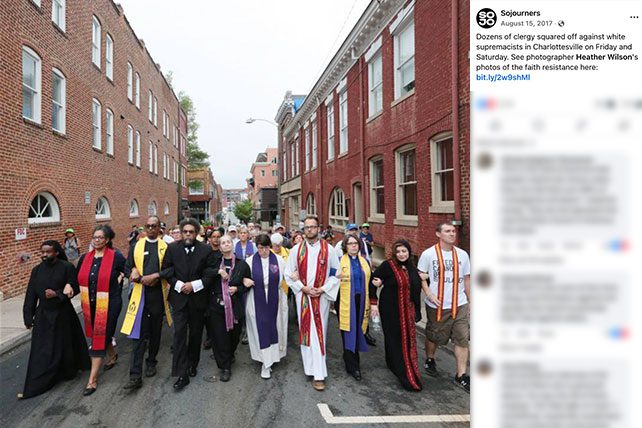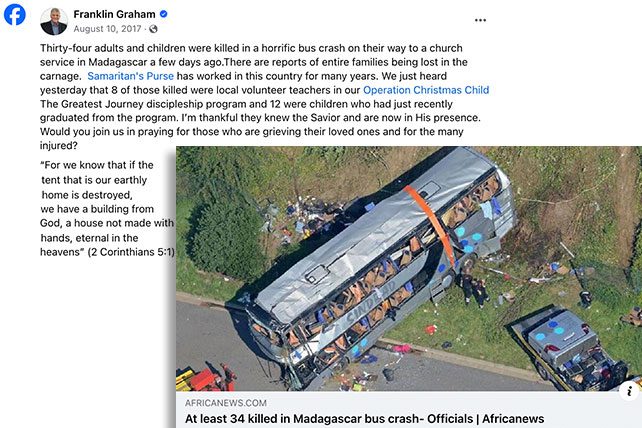From the Editor: “He’s My #@*!-ing Pastor!” contains references to profane language. While it is not our practice to include language such as this on churchleaders.com, we feel this article about divine interruption uses the references in a way that adds understanding and context to the story. The story itself is a practical example of reaching out to people in a different situation than your own and being willing to receive divine interruption as you dwell among those whose lives have not been transformed by the gospel yet.
Receiving Divine Interruption
How ready are you for a divine interruption?
My morning office is the Waffle House. About three months ago I went into the Waffle House (WH) and I sat down in a chair at the “low bar,” the bar you can sit at that is at normal chair height. I did not notice the used coffee cup that was on the bar in the back next to the menu rack in front of the chair I sat in. It belonged to a man I will call Chuck, who happened to have gone outside to smoke a morning cigarette. Chuck is a man who comes frequently to the WH. He is a “rough” and crude man in his late 50s. He cusses allot and gives the waitresses and customers a hard time and is sharp with them when he is “in that mood.” Chuck walked back into the WH, saw me sitting in “his chair,” walked up to me and said coldly, “Hey #@*!, you are in my seat!” I turned to him and before I could say a word the two waitresses who were standing there almost jumped over the bar and verbally attacked Chuck. One said, “Now you listen here you #@*!, this man here is a #@*! man of God and if you ever talk to him like that again I will kick your #@*!!!” The other waitress jumped in, “Ya you #@*!, he is my #@*!-ing pastor! What the #@*! is wrong with you!” Show some #@*! respect!” The waitresses high-fived each other and one said to the other, “Sword of the spirit, #@*!!” And Chuck turned and walked out.
I sat there and processed what had just happened! First, the waitresses have never come to an ODC gathering, though I have invited them many times. And I never told the waitresses I was their pastor. But because of my coming into the WH four or five mornings a week and talking, listening and praying with them, it appears that is how they saw me. The other day the waitresses were talking about how life seemed to be attacking them. I took out my phone and I read to them from Ephesians 6 about the armor of God and explained it to them. And the one waitresses shouting “Sword of the spirit, #@*!” shows they were listening and retaining what I told them, I just need to work a little more on their application of that verse!
Fast forward to the divine interruption I experienced a month ago. I was walking in the WH and Chuck was outside in the front smoking. I said good morning to him as I was walking by, and Chuck kind of quietly and nicely (especially for Chuck!) asked if I had a moment. I told him sure and stopped by him. He said quietly as he looked at the ground, “I know you are kind of a religious guy and it’s not that big of a deal but I was wondering if you would pray for me for something. “I said, “Sure what’s up?” And he went on to say that the doctors think he may have prostrate cancer and he had a test today to confirm it. I said, “Of course,” but before I could say anything else he opened up and told me a story for about 10 minutes. The short summary of it was that he used to go to church a long time ago and was kind of close to God. Then he was drafted to Vietnam to fight in the war. He said he did some things there he was not proud of, things God could not forgive him for. He said in attacks on villages he shot and killed enemy soldiers who were just kids, also women and elderly. He saw children killed and witnessed and participated in other atrocities of war. He stopped praying after the war and has never gone back to church since he came back to the states. When I asked to pray with him there he said no, he had to leave, but for me to pray as you feel God will listen.
As he walked away my heart both mourned for him and was convicted for me. I had joined in with others at the WH at times commenting on Chuck and his behavior. However, the reason Chuck was an angry and hurtful man is he was filled with guilt that separated him from God. Guilt from things he did he thought were not forgivable. And I though I know and preach that God can forgive anything, I have never put him to “the test” of his forgiveness like Chuck has to. If I was the one looking down an M-16 and watching bullets splatter bodies of kids and women from my gun and trigger I was pulling, the event might make me an even bigger, hateful, guilt-filled person than Chuck. It reminded me that people are never the enemy.
Fast forward to yesterday morning. I was in the WH at the bar talking with customers and the waitresses when Chuck walked in. He walked over to a side bar he never sits in by himself and sat down. No cussing, no loud comments to people as he came in the restaurant. He looked devastated. One of the waitresses said they heard his son had died the previous night. My spirit told me to go sit in the chair next to him and I did. I said good morning to him and he said hey, and his eyes began to fill with tears. I told him I had heard that his son had died and if it was true, I was so sorry. We talked again for 20 minutes. Summary, he told me his son, who was 31 years old, and some of his friends, Chuck and Chuck’s wife (his son’s mother) were out on the front porch talking. His son told his friends how he had bought a new pistol. They asked to see it. He went into his truck and got it out, removed the clip and thought the gun was empty. It was not. He came back to the porch, and in handing the gun to his friend somehow it went off and the bullet hit his son in the head from less then two feet away. They rushed him to the hospital, but he died a few hours after he arrived. Chuck said he and his wife witnessed it. He could not get the sight out of his mind. It reminded him of the war. He had to come home from the hospital and clean his son’s blood, hair and other parts from the side of his house and porch. Tears were flowing down his face. He asked me if this was God’s punishment for the kids he killed in Vietnam. I said of course not and we talked awhile. His son had a wife and two kids 8 and 10 years old.
After we finished, I went home and my wife and I took the chicken I had grilled for dinner, along with sides, bread and a dessert, and I put it in a box and took it up to the WH. I also wrote a note to the family stating I was praying for them and asking to let me know if I could help in anyway with my phone number on it and put it in the box as well. I pulled into the WH just in time as Chuck was walking to his car to leave. I parked, got the box and gave it to him. Chuck teared up again as he took it. He said I did not have to, but I insisted, told him I was praying for him and I left.
Fast forward to today. I received a call today from Chuck. He thanked me for the food. He then said he and his family do not have any money. They are getting the cheapest cremation they can, and just going to do a remembrance service at their home. Their family does not attend a church, they do not know many church people, let alone preachers, and he asked if I would be willing to come to their house and share from the Bible and some words over their son and their family. I told him I would be honored to.
I have been going to the WH regularly for over three years now. Sometimes I wondered if I needed to continue going. Only one or two people, employees or customers, have ever came to an ODC gathering. So if you go by traditional church metrics, my time investment has not led to “church growth” or increased “numbers in the pews.” It has not resulted in one penny going into our offertory plate or pastor support. Yet God reminded me of my prayer I say to him every morning, which is, “God, please send me today the ones that no one else wants.” No one wanted Chuck; even I found it hard to be open to divine interruption and be around him. But God, through just being faithful, has given me an amazing opportunity: to be welcomed into his house, a house, a circle of family and friends, that no other pastor has ever been invited into, and share the love of God with them. And that is my heart’s desire, not to see them as an “evangelist’s projector opportunity” but a family in pain that simply needs the love of God, and to love them. I pray I may honor this.
My ODC family, I pray today you will be led by the Holy Spirit not to seek and enter into some structured ministry with people, but just simply enter into life and the lives of people. That in your daily set schedule you will allow and come to expect, even long for, a divine interruption from two things: God and people. Please for pray the same kinds of divine interruption for me. God bless you my friends!
Gary Liederbach
Lead Follower: ODC
This article about being ready for a divine interruption originally appeared here.













